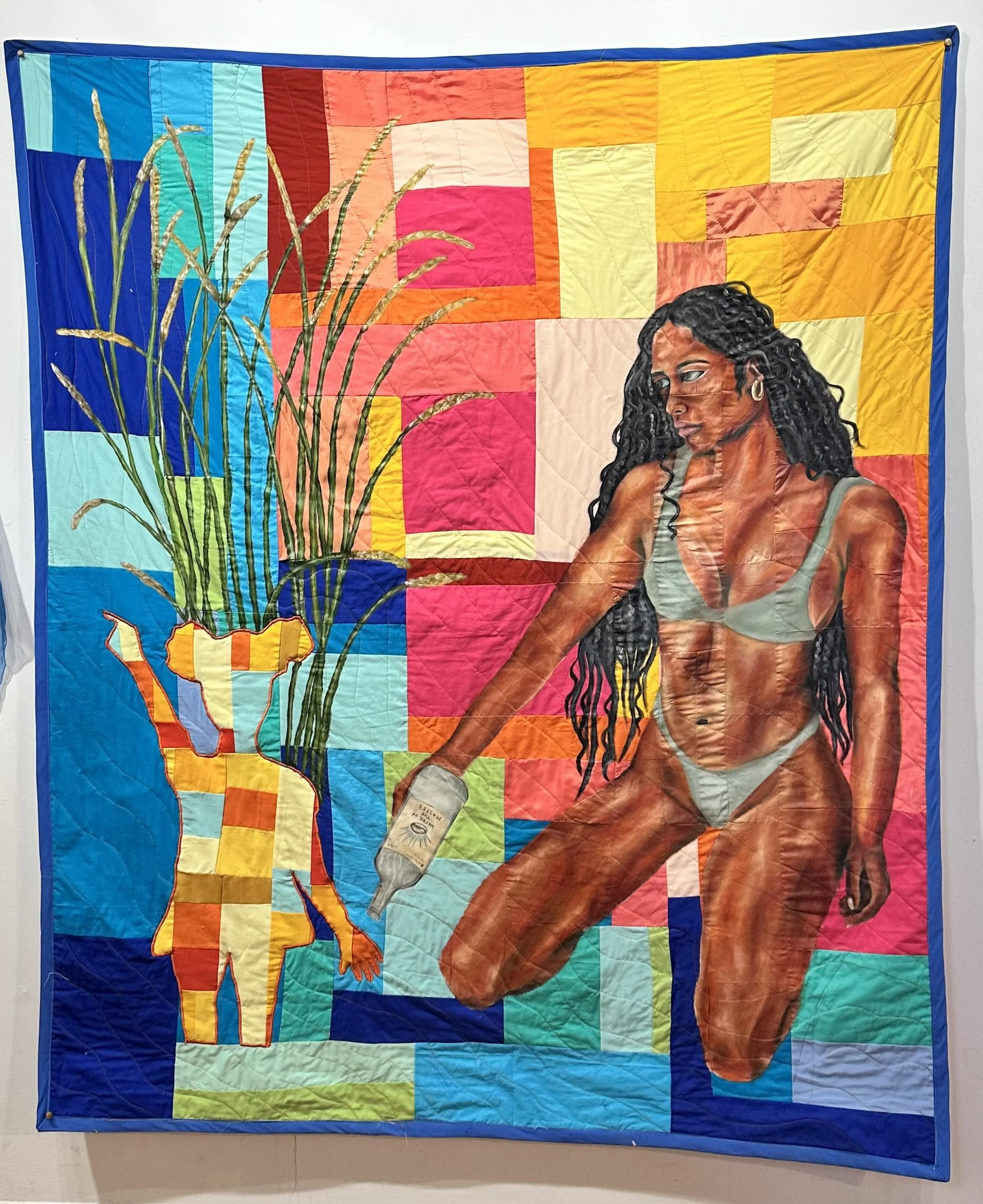ALIYA BONNETTE
SPOKEN STITCH
January 17 — May 25, 2025
OPENING EVENT: February 6 | 5 - 8 PM
Inheritance can manifest in a variety of ways. Whether it be personality traits passed through genetics or valuable tokens handed down, the act of inheriting something is inevitable and individually impactful. It allows us to connect with those who came before us; a metaphorical hand reaching through time to leave an imprint. For Aliyah Bonnette, the connection came from deep roots bound in a generational narrative.
Bonnette developed an interest in textiles upon learning that quilts were created to aid enslaved people as they traveled on the Underground Railroad. After this initial historical connection, Bonnette discovered a personal link through her own grandmother, who turned out to be a quilter herself. When her grandmother passed away, Bonnette found stores of unused fabrics and incomplete quilts that she had made during her life. The inherited materials inspired Bonnette to not only further her own practice, but incorporate her grandmother’s unfinished designs.
The work begins with writing. Bonnette utilizes poetry to unlock the structure and nature of the works before beginning. Compositions for the quilts are not necessarily outlined, but are rather discovered through improvisational techniques; pulling materials to build colors and texture as the work progresses. The technique mirrors the responsive necessity of quilt-making during the abolitionist movement in contrast to a more contemporary working mode for pleasure or pastime. While the textile work is improvised, Bonnette’s painted additions are more clearly plotted. The figures are painted from photographs and although based on real people, Bonnette visualizes them as vehicles of narration through each work.
Bonnette’s process-based practice encourages active participation at all stages. Her incorporation of not only the inherited materials, but the conceptual premises is a testament to the formative variety that ultimately shapes the work. She views this process as a way of weaving together a generational narrative between herself and the many who came before her. Each work reflects a larger conversation about the reclamation of the black female body that is both historically referential and deeply personal.
Beckler Family Gallery


